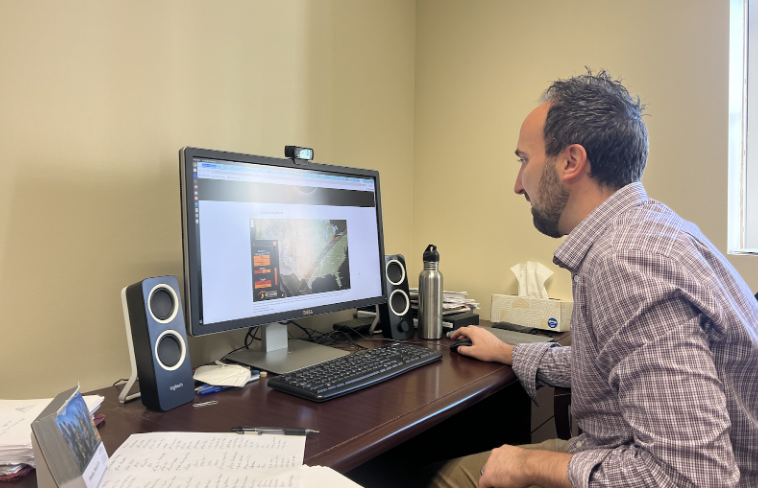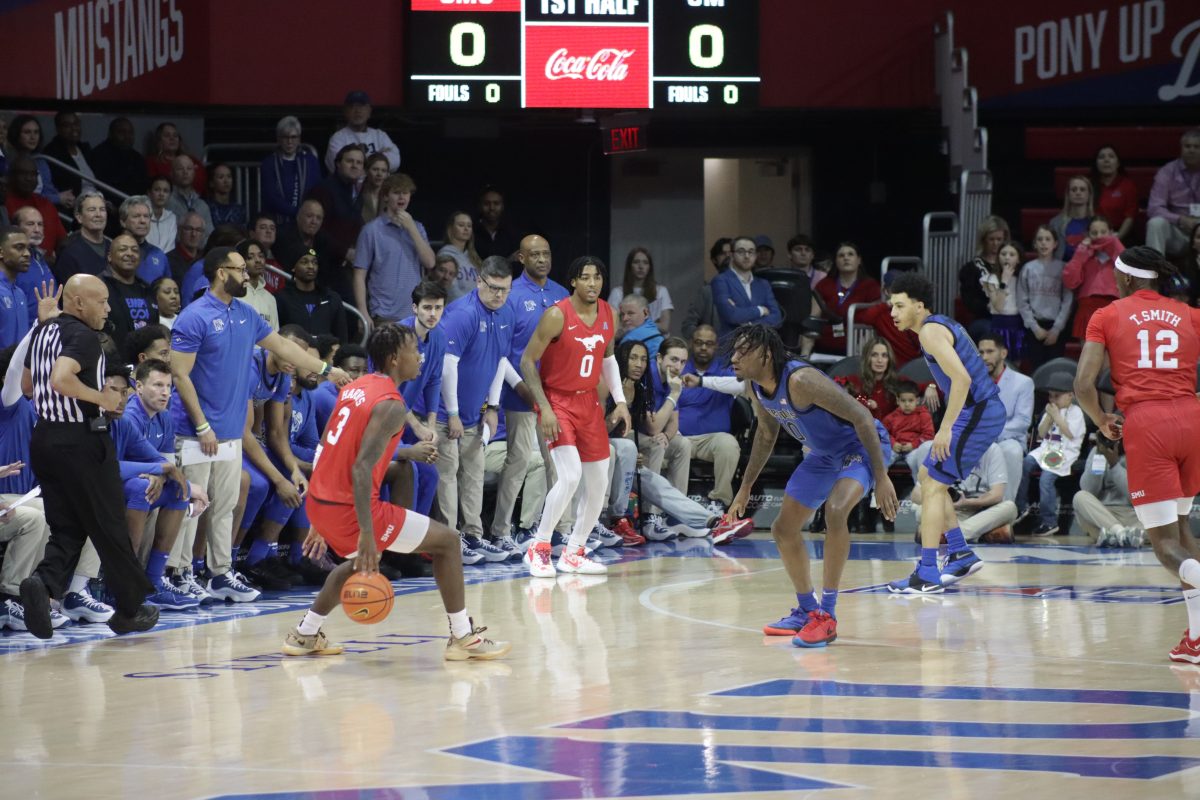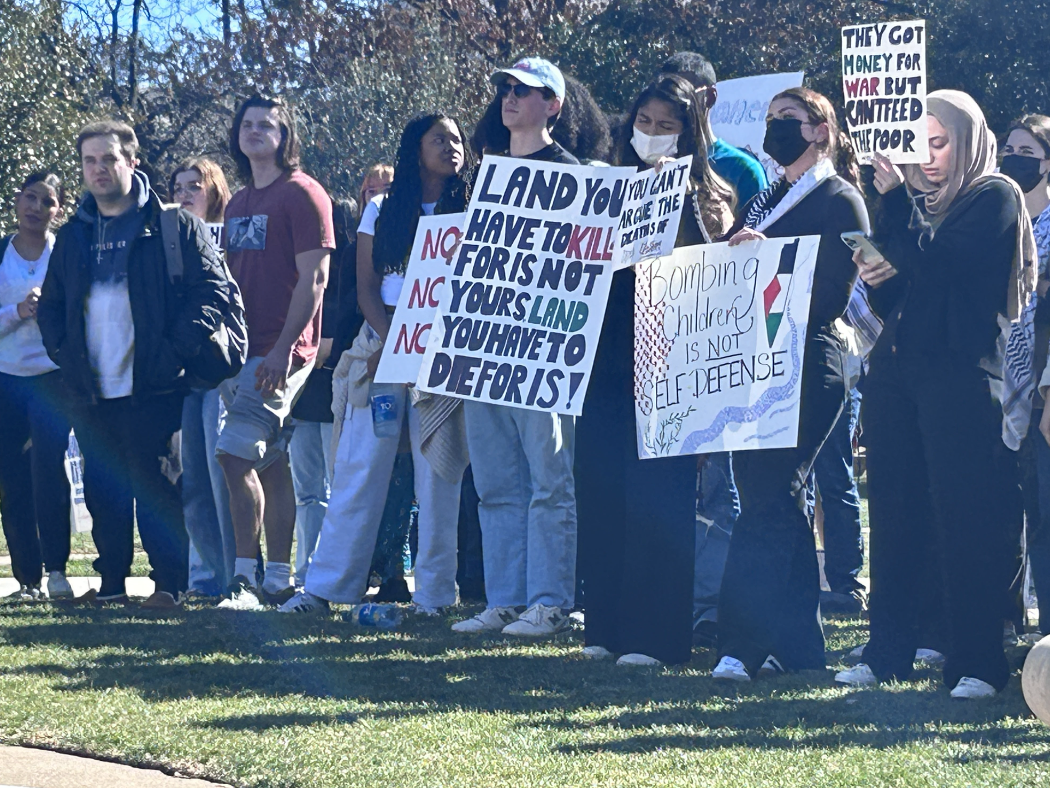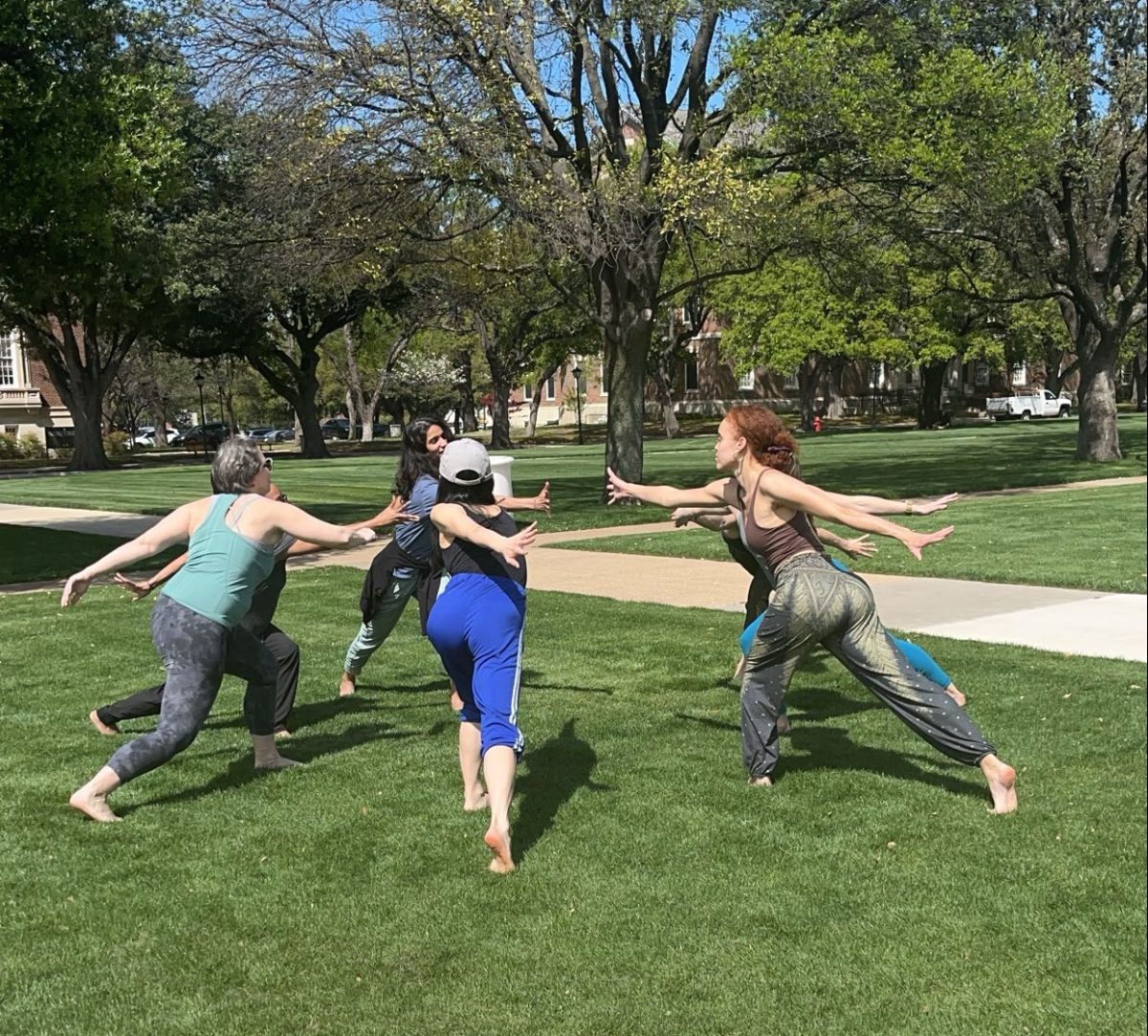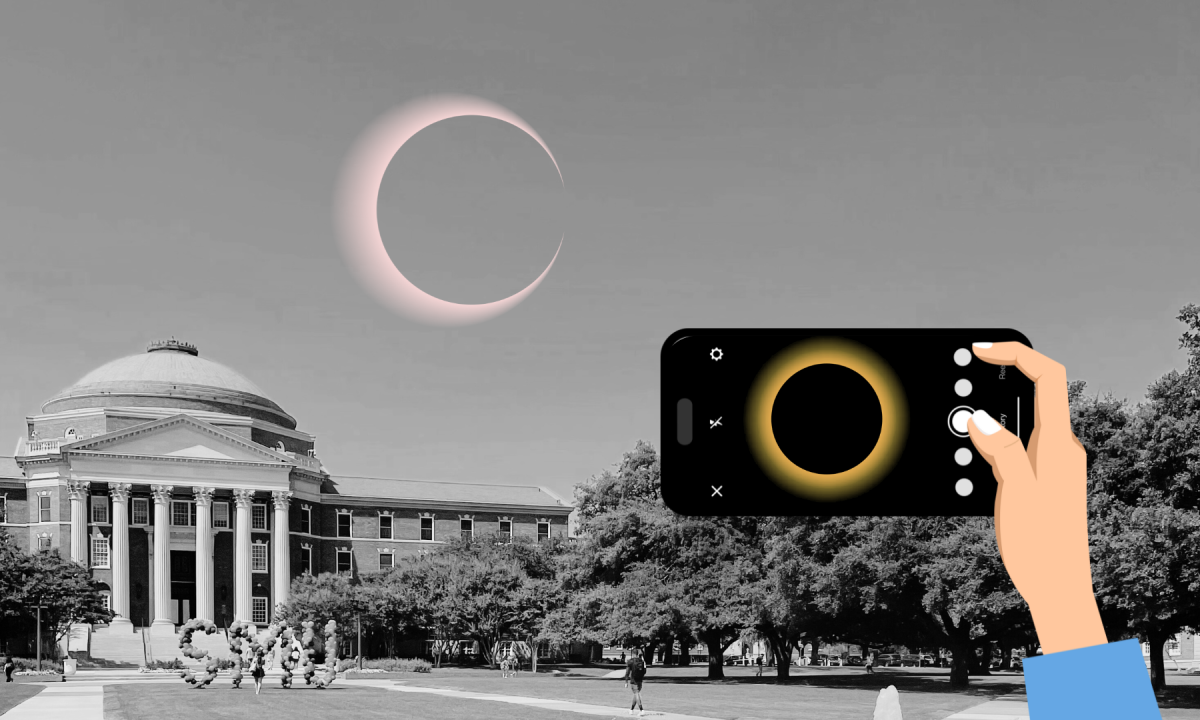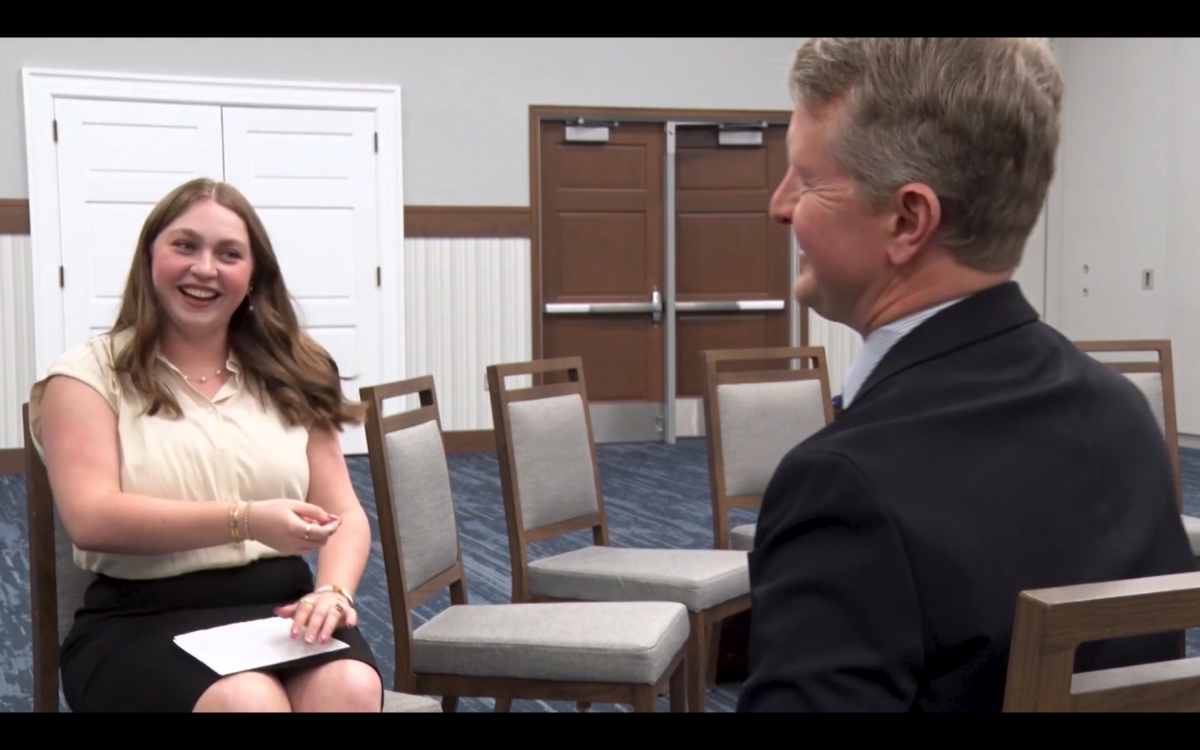As the Spring 2022 semester gets underway—and as the Omicron variant has led to record-high rates of COVID-19 that continue to increase exponentially, and are predicted to overwhelm already overburdened hospitals—SMU continues to make mask-wearing optional on campus.
This policy is prudentially unwise and unethical.
SMU has framed mask-wearing as a matter of personal liberty: anyone can wear a mask if they wish, and faculty members can choose to require masks in their own classrooms. The first problem with this is that staff do not have the same power to require masks in their workspaces. Throughout the pandemic, SMU has consistently offered fewer accommodations to staff, who were required to work in person even when many faculty were permitted to teach online. This treats staff as second-class citizens and is seriously unjust.
More fundamentally, this approach misunderstands the moral stakes of mask-wearing. Masking up during a viral pandemic is a matter of public health rather than individual choice. Wearing a high-quality mask helps protect you from being infected by others. But it also helps protect others from being infected by you, which is especially important because the Omicron variant of COVID-19 has high rates of asymptomatic transmission.
Personal choice is a fiction when it comes to a virus. For your choice is no longer within the protected realm of your own liberty if it risks serious harm to others. People have the right to drink to excess if they choose, but it becomes a public problem if they get behind the wheel of a car. If refusing to wear a mask put only you at higher risk of contracting a disease, this could be a matter of individual liberty. But going mask-free in indoor public places puts others—including those who can’t effectively protect themselves, such as children under five and people with suppressed immune systems—at higher risk of getting sick, developing a lifelong disability, or dying from COVID-19. Higher rates of infection also likely increase the potential for virus mutation and more variants in the future.
Accordingly, public health decisions must be made in a collective way, based on good reasons that can be justified to all of us. And the public health guidelines are unambiguous: there is no room for reasonable debate about whether we ought to be wearing masks in indoor public spaces on campus. Recommendations from the CDC unambiguously state that unvaccinated people should wear a mask—ideally an N95 or equivalent—indoors in all public settings, and that vaccinated people should wear a mask indoors in areas of substantial or high transmission. Nearly all counties in the U.S. currently meet this standard, and Dallas County is currently in a red alert for “high risk of transmission.” SMU alone has over 300 documented cases, with cases steadily rising.
SMU is following CDC guidelines about reducing quarantine periods to 5 days. Why are we not also following CDC guidelines about mask-wearing? Who does it serve to ignore these guidelines? What explains this inconsistency?
As scholars of ethics and human rights, we are trained to think about moral questions. Many such questions are challenging to answer. But whether to implement a mask requirement is not: all the most influential frameworks for thinking about ethics agree that universities should require masks on campus.
A consequentialist approach advises figuring out which action will likely lead to the best possible outcome for the greatest number of people. There are costs to requiring masks—they can be uncomfortable, and make communication harder. But the expected benefits of universal masking—including reducing rates of a painful and potentially serious illness and easing the burden on our overtaxed health system—massively outweigh these costs. It’s worth it for all of us to be slightly less comfortable to prevent large amounts of suffering for some of us.
Another influential approach is Kantian deontology, which tells us to that we must respect each other by avoiding treating people in ways they do not consent to or using them as tools for our own purposes. Revoking the mask requirement was done without our consent, and goes directly against the resolution passed by the Faculty Senate in August 2021. Exposing others to an increased risk of COVID-19 for your own comfort disrespects them by hindering their ability to protect themselves. It also undermines the fundamental human right to health: we are entitled to the “highest attainable standard of health” as a basic right, and needlessly exposing students and workers to increased risk of COVID-19 violates this entitlement.
Virtue ethics focuses on cultivating good character traits and trying to become good people. Requiring masks exhibits virtues such as kindness and consideration for others, proper cautiousness in the face of a serious threat, and patience and determination in maintaining sensible protections even as we feel tempted to retreat into wishful thinking and pretend all is normal.
Finally, feminist ethics emphasizes our interdependence and the importance of caring for each other and resisting oppression. Nothing illustrates how my well-being is connected to yours more vividly than a viral pandemic, and universal masking respects this. The lack of a mask requirement risks imposing further harms on those on campus who are most vulnerable and least able to protect themselves—including Black and Latinx folks whose communities have been disproportionately impacted by the virus, students and staff who have (or live with those who have) serious health conditions, contract workers earning low wages who have no control over their work environments, and adjunct faculty and graduate students who may feel pressured to avoid requiring masks in their classrooms.
As a private university with record-high enrollment and a robust financial outlook, SMU has the resources to be a leader in combatting the spread of COVID-19. Yet we are doing significantly less than other schools and universities in our region. UT Dallas and UT Arlington are both moving classes online and encouraging staff work remotely through early February, and UTA is requiring re-entry testing. And Baylor, TCU, and all campuses of both Dallas College and Dallas ISD have mask mandates for all students, staff, and visitors.
SMU is striving to become a world-class R1 university. But we aren’t behaving like one: other major universities have instituted much more robust pandemic protections than we have. All of SMU’s aspirational peers (and the entire Ivy League) are requiring vaccines, with most requiring boosters. Many schools have moved courses online during the peak of the Omicron surge. Many more are requiring re-entry testing and/or routine COVID-19 surveillance testing. At very least, research universities that respect science and take public health seriously are requiring mask-wearing (at least, when they are not prevented by state governments from doing so).
What sort of example is SMU setting by adopting none of these sensible policies? What does SMU stand for? Implementing a campus-wide indoor mask requirement is legal, advised by the CDC, and imposes little cost to no cost on the university. It’s also the morally right thing, and the bare minimum that SMU can do to protect not only our own community and the most vulnerable among us but also the greater public good that we should serve.
We strongly urge SMU to reinstate our campus mask requirement. If you agree with us, let our campus leaders know that you do not stand by their decision to continue ignoring the most basic communal safety measures by endorsing this letter.
Dr. Alida Liberman, Associate Professor of Philosophy
Dr. Steve Long, Cary M. Maguire University Professor of Ethics
Dr. Rick Halperin, Director, SMU Human Rights Program
Dr. Brad Klein, Associate Director, SMU Human Rights Program
The Daily Campus welcomes opinion contributions from students, faculty and community members. Submissions should be no more than 1000 words and are subject to copy editing. Please email submissions to [email protected], and include a cell phone number and a short biography. All pieces submitted to and published by The Daily Campus are under the publishing and editorial purview of the paper once published.










